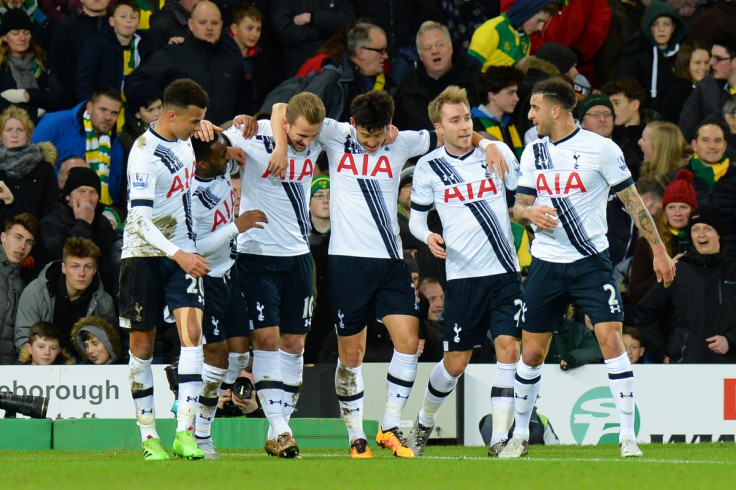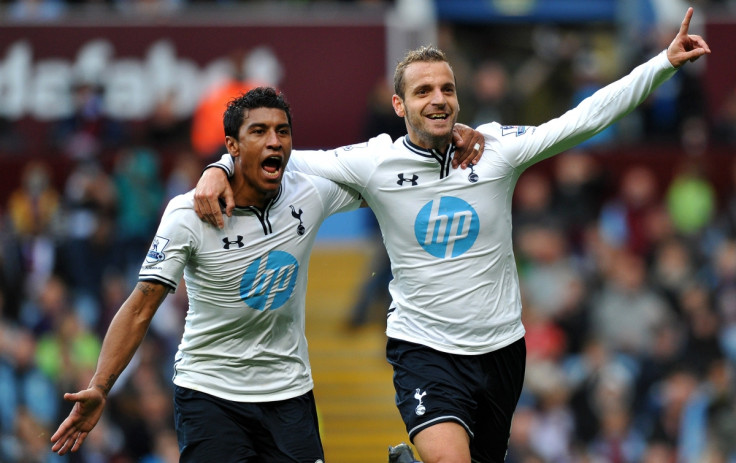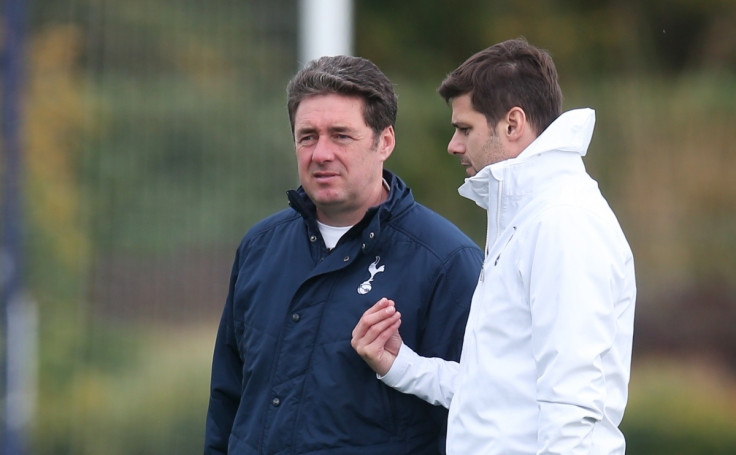Tottenham Hotspur have already laid the groundwork to join Premier League elite for years to come

As Craig Dawson's header struck the back of the net on a blustery night in north London on Monday (25 April), Tottenham Hotspur's Premier League title hopes were all but ended. The club must now rely on Leicester City losing their nerve completely, but with just three points required from their final three games of the season, a historic title victory surely beckons.
However, even if they fail to catch the Foxes this term, those at White Hart Lane will still be able to sit back and marvel over the startling progress the club have made over the last two years, laying the groundwork to become a consistent and potent Premier League force for years to come.
It has been a season littered with success stories for Spurs. With 24 league goals to his name, Harry Kane has made a mockery of claims that last year's breakthrough season would be a flash in the pan. The presence of Toby Alderweireld has made a defence that once leaked habitually the tightest unit in the league, while the meteoric rise of Dele Alli has seen the former MK Dons midfielder rightfully recognised as the best young footballer in this division.
This season is full of individual merits, but many of the steps taken to ensure the club got to where they are today were made off the pitch. Many of them in fact stem from the chaotic summer of 2013, when the club attempted to offset the departure of Gareth Bale with a slew of high-profile signings.
The first season following the Welshman's world-record move to Real Madrid is mostly remembered for the failures of Roberto Soldado, Paulinho, Etienne Capoue and Vlad Chiriches. They were among the players brought during a summer transfer window where the club shattered their transfer record three times in 57 days as they sought to make a clear statement of intent.
They also coincided with the arrival of Franco Baldini as the club's new technical director alongside manager Andre Villas-Boas. It failed to work out, and eventually cost the Portuguese coach his job in December 2013 after a summer of record spending for the club.

Tottenham finished the 2013-14 season in sixth place. That policy of high-profile spending was soon abolished, as detailed in a meeting between the club's Supporters Trust and chairman Daniel Levy in April 2015. "THFC's transfer comfort zone was with younger players around the £10m-15m price range and they would look to return to that policy," the minutes from that meeting noted.
"[It] was felt that moving away from this strategy in summer 2013 hadn't worked well for THFC, however, DL [Daniel Levy] was keen to stress the club had backed the coach [Andre Villas-Boas] and technical director [Franco Baldini] with those purchases."
While it wasn't specifically outlined by Levy, the change in policy will have inevitably been at least partially influenced by a bit of belt-tightening as plans for the club's new 61,000-seater stadium began to kick into gear.
But the change had the desired effect. In place of the expensive, high-risk strategy defined by the failures of Paulinho and Soldado, Tottenham have instead reaped the rewards of a more careful approach in the transfer window.
Of the 12 players signed by Tottenham in the last two seasons, only one of them – South Korea international Heung-Min Son – cost more than £15m. Of those 12, only two, Federico Fazio and Benjamin Stambouli, have failed to work out. The club even turned a profit on the latter of those when he was sold to Paris Saint-Germain last summer.
Among those excellent deals were the £12m signing of Toby Alderweireld and the £3m signing of Eric Dier, purchased from Sporting in 2014. The 22-year-old is now one of the league's best holding midfielders. Not too long ago, that was identified as a problem area for Spurs and the club were persistently linked with players to address that; a trend that is now well and truly a thing of the past.
Tottenham's attempts to restructure the way the club do business saw Baldini take a backseat role, before officially leaving the club in September 2015. In his place, albeit in a slightly different role, has been Paul Mitchell, who followed Mauricio Pochettino to the club in November 2014 from Southampton as head of recruitment. Unlike Baldini, who arrived at White Hart Lane with a thick contact book having overseen high profile transfers at Real Madrid and Roma, Mitchell's role is a rather simpler one; examining and analysing football players.

Mitchell is one part of the Tottenham triumvirate that has helped them complete this change in approach. Completing it alongside Pochettino is John McDermott. Reportedly targeted by Manchester United before they made Nicky Butt their new head of academy, he was handed a new role overseeing every level of youth development and coaching below the first-team this year, working alongside Pochettino and Mitchell to ensure Tottenham's steady flow of academy graduates into the first-team continues.
The seamless communication between the three has Tottenham operating in near-perfect harmony. While there has been the occasional question regarding transfer policy, namely the failure to sign another centre forward to back-up Kane last summer, the club have made nearly all the right calls. Pochettino, meanwhile, can seemingly do no wrong, with his tireless coaching and endearing vision for the game establishing him as one of the finest coaches in the Premier League.
It is very unlikely Manchester United and Chelsea will be as woeful as they have been this term in the 2016-17 season, while Liverpool will continue to evolve under Jurgen Klopp. But having already righted a few wrongs of the last few years, Tottenham's position among the league's elite is surely a given.
© Copyright IBTimes 2025. All rights reserved.






















